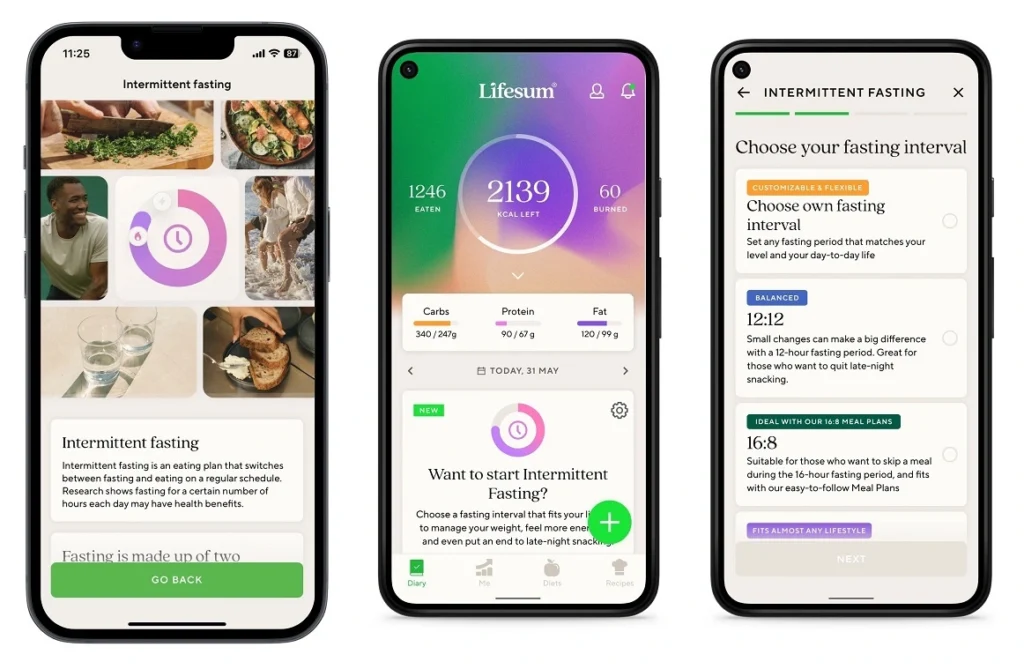As technology advances, nutrition is moving toward a personalized approach that accounts for individual differences in genetics, metabolism, lifestyle, and environment.
Signe Svanfeldt is the Chief Nutritionist at Lifesum, a popular healthy eating platform
Our understanding of nutritional science is changing rapidly. Experts are moving away from a one-size-fits-all approach to dietary recommendations and embracing personalized nutrition, which accounts for each person’s unique makeup.
Why? Because developing science gives us a deeper understanding of the complex interplay between environmental factors, genetics and diet, among others.
In this article, we will explore why personal nutrition is so important, how technology is enhancing our understanding of it and what implications this change will have for health and well-being.
1. Why Personalized Nutrition?
Personalized nutrition tailors nutritional guidance based on a person’s unique characteristics, including genetics, metabolism, lifestyle and environmental factors.
This customized approach is highly effective in preventing and managing health conditions, improving outcomes by addressing specific nutritional needs and providing precise guidance to optimize overall nutritional balance.
Gut Health
Did you know, the human gut microbiome contains trillions of bacteria, which together weigh about 2 kilograms in an average adult! These bacteria play critical roles in digestion and immunity, comprising a diverse ecosystem with significant individual variation that affects overall well-being and health.
Research suggests that variations in gut bacteria can significantly influence fiber metabolism and susceptibility to conditions such as obesity and diabetes.
Personalized nutrition leverages this understanding to tailor diets that promote the health of each individual’s specific microbiome, which improves digestion, improves nutrient absorption and lowers the risk of chronic diseases such as diabetes and cardiovascular disease.
Genetics
Let’s not forget the role of genetics, as research advances have confirmed the enormous influence of genes on individual responses to diet.
Recent large-scale studies have shown significant variations in dietary reactions among individuals—even among identical twins.
Key genetic markers have emerged as predictors of how individuals will respond to specific diets, influencing outcomes such as weight loss success.
These findings highlight the importance of personalized nutritional strategies that take into account each individual’s unique genetic profile to effectively optimize health outcomes.
Lifestyle
It’s easy to forget how lifestyle factors such as stress, sleep quality and physical activity can significantly affect nutritional needs.
Personalized nutrition integrates these variables, adapting dietary recommendations to meet each individual’s unique daily routine and environmental conditions.
For example, individuals with allergies or intolerances require diets that avoid stimulating foods and ensure nutritional adequacy.
This personalized approach not only supports overall wellness but also addresses other factors such as mental health concerns such as depression and anxiety through targeted nutritional strategies such as omega-3 fatty acids, probiotics and antioxidants.
2. Advances in Technology
Wearables & Digital Health
How many devices do you use to monitor your health?
Wearable devices and digital health technologies have transformed personalized nutrition by providing real-time data on physical activity, sleep patterns, heart rate and stress levels, enabling precise dietary recommendations tailored to individual health metrics.
Wearable devices and digital health technologies also promote adherence to nutrition plans by providing continuous feedback and encouragement, ultimately promoting healthier behaviors aligned with individual health needs and lifestyle factors.
For example, sleep data plays a critical role in overall health, influencing dietary choices and calorie consumption.
Take Lifesum’s collaboration with Oura. This partnership combines advanced data analytics from Oura’s sleep tracking technology with Lifesum’s nutrition and fitness platform and allows users to gain deep insights into how their dietary choices affect their sleep patterns and overall health. By understanding this relationship, users can make informed decisions about their specific nutrition and lifestyle habits to optimize their well-being.
Wearable devices and digital health technologies not only track nutrient intake and provide behavioral insights but also integrate biometrics such as blood glucose levels for personalized meal planning and chronic condition management.
Lifesum’s recent acquisition of Lykon, Germany’s leading biomarker-based personalized nutrition company, adds to those capabilities, offering deep health insights and personalized nutrition recommendations based on medical science. This advancement enables users to scientifically validate and conveniently improve their health, gaining unprecedented insights into their nutritional needs, metabolic type and overall well-being.
AI & Real-Time Data
AI and real-time data are transforming personalized nutrition by continuously monitoring and analyzing individual health metrics such as activity levels, biometrics and dietary habits.
Using AI algorithms, these technologies predict and adjust dietary recommendations in real time, ensuring precise responses to immediate health needs and conditions.
By integrating various data sources including genetic information and microbiome analysis, AI-driven systems deliver highly personalized nutrition plans that maximize nutrient intake and support individual health goals.
This approach provides dynamic feedback, personalized meal planning and scalable solutions that improve user engagement, improve adherence to nutrition plans and effectively manage chronic conditions.
3. Health & Wellness
Improved Quality of Life
Personalized nutrition extends beyond disease prevention to improve quality of life by addressing individual needs and preferences.
Customized diet plans can improve energy levels, mental clarity and overall well-being, precisely aligning with each individual’s unique biological and lifestyle factors.
For example, personalized nutrition is extremely important for athletes because it allows precise adjustment of dietary intake to match individual physiological characteristics, training goals and performance needs, ultimately maximizing performance and long-term health outcomes.
In addition, individuals with specific dietary sensitivities or allergies can benefit significantly from personalized diets that avoid stimulating foods and ensure adequate nutrient intake.
This approach not only enhances health outcomes but promotes greater enjoyment and long-term sustainability of dietary modifications, encouraging a balanced and satisfying lifestyle.
Health Prevention
Personalized nutrition offers significant potential in the prevention and management of chronic diseases such as cancer, cardiovascular disease and diabetes.
By tailoring dietary recommendations to a person’s genetic makeup and lifestyle factors, risk factors associated with these types of conditions can be mitigated.
For example, individuals with a genetic predisposition to high cholesterol can benefit from personalized diets low in saturated fats and rich in plant sterols, effectively managing cholesterol levels and reducing the risk of heart disease.

The Future is Personalized
The future of nutrition is moving towards a personalized approach that takes into account genetics, metabolism, lifestyle and individual environment.
This shift from one-size-fits-all recommendations reflects a deeper understanding of how these factors interact with diet to influence health.
Personalized nutrition not only addresses specific nutritional needs and improves adherence but also supports nutrient digestion and absorption, and reduces chronic disease risks tailored to each individual’s unique biological profile.
By integrating advances in genomics, wearable technology and AI analytics, a personalized approach to nutrition aims to provide precise, real-time nutritional guidance tailored to individual health metrics and lifestyles, promoting sustainable balanced nutrition.
